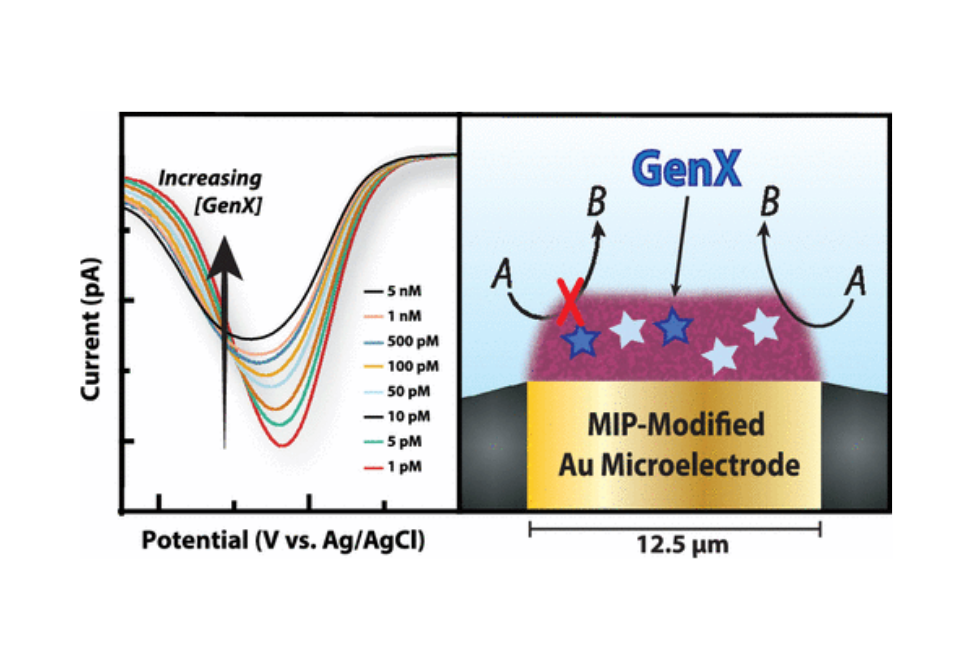mu-MIP: Molecularly Imprinted Polymer-Modified Microelectrodes for the Ultrasensitive Quantification of GenX (HFPO-DA) in River Water
Abstract
Per- and polyfluoroalkyl substances (PFAS) are emerging as a hazardous class of environmental micropollutant, and robust, sensitive, and inexpensive sensing modalities are needed to detect the earliest onset of contamination of surface water. Here, we present a molecularly imprinted polymer (MIP)-modified microelectrode (r = 6.25 μm) sensor for the quantification of a pervasive environmental PFAS, GenX (HFPO-DA), in surface water obtained from the Haw River in North Carolina. A 20 nm film of o-phenylenediamine was electropolymerized in the presence of GenX to generate a templated polymer adjacent to the electrode surface with subsequent solvent extraction resulting in GenX-specific recognition sites. The oxidation of ferrocene methanol was observed as a function of GenX concentration, and the current decreased linearly with the concentration of GenX. A linear dynamic range of 1–5000 pM with a limit of detection of 250 fM and excellent selectivity against environmental interferents, such as humic acid and perfluorooctanesulfonate, was achieved. The use of oxygen reduction as an additional ambient detection mechanism and the amenability of microelectrodes to relatively resistive environmental matrices are demonstrated to extend the applicability of MIP-modified microelectrodes to environmental waterways as deployable sensors.
Citation
μ-MIP: Molecularly Imprinted Polymer-Modified Microelectrodes for the Ultrasensitive Quantification of GenX (HFPO-DA) in River Water
Matthew W. Glasscott, Kathryn J. Vannoy, Rezvan Kazemi, Matthew D. Verber, and Jeffrey E. Dick
Environmental Science & Technology Letters 2020 7 (7), 489-495
DOI: 10.1021/acs.estlett.0c00341


